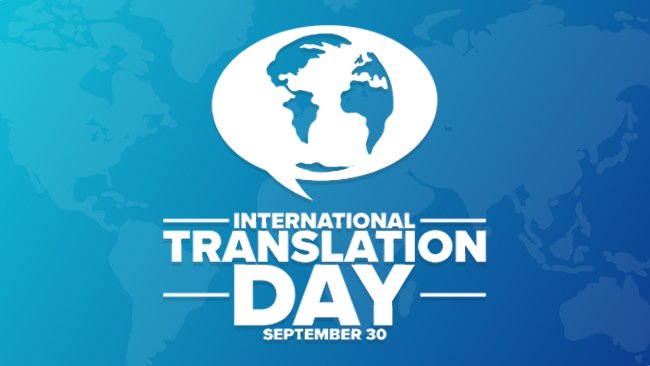International Translation Day

Today is International Translation Day. In May 2017, the United Nations (UN) General Assembly adopted a resolution to declare September 30th, International Translation Day, to recognize the role of language professionals in connecting nations and fostering peace.
According to the UN, “International Translation Day is meant as an opportunity to pay tribute to the work of language professionals, which plays an important role in bringing nations together, facilitating dialogue, understanding and cooperation, contributing to the development and strengthening world peace and security.”
A Brief History of Translation
The word “translation” comes from a Latin term meaning “to bring or carry across.” Translations have contributed to the creation of the world’s cultures, facilitated trade, allowed ideas and innovations to spread, and enabled people to communicate and understand each other.
The first known translations are of The Epic of Gilgamesh (an epic poem from ancient Mesopotamia; regarded as the earliest surviving great work of literature), the Indian sutras into Chinese and Greek texts translated by Roman poets. Some of the earliest known translators were Cicero and Horace of ancient Rome.
Religious texts have played an important role in the history of translation. The translation of the Old Testament into Greek in the 3rd century B.C. by a team of 70 scholars is one of the first recorded occurrences of translation in the West.
Many of the philosophical and scientific works of ancient Greece were translated into Arabic as early as the ninth century A.D.
Famous Translators
Many of the earliest translators are unknown, but here is a list of some of the most famous translators in history from around the world.
Kumārajīva (344-431 AD). He was a Buddhist monk and scholar who translated Buddhist texts written in Sanskrit into Chinese in the late 4th century. His most famous work is the “Diamond Sutra,” which became an object of devotion and study in Zen Buddhism.
St. Jerome (347-420 AD). He is credited with translating the majority of the Bible from Greek and Hebrew into Latin. His translations were called the Vulgate and became the official Catholic version of the Bible. His translation of the Bible was the only version used for one thousand years.
Claudine Picardet (1735-1820). Picardet was a chemist who translated scientific studies from Swedish, German, English, Italian, and Latin into French. She did this in the 18th century when many women weren’t even being educated.
Constance Garnett (1861-1946). Garnett brought Russian authors to English audiences. Her translations included works by Chekhov, Tolstoy, and Dostoyevsky. She translated 71 volumes of Russian literature.
Jorge Luis Borges (1899-1986). Borges was both an author and a translator. He is credited with translating works by Edgar Allan Poe, Franz Kafka, William Faulkner, Walt Whitman, Virginia Woolf, Rudyard Kipling, and others into Spanish.
There are many, many others we can thank for the evolution of translation and the world’s languages.
Happy Translation Day to all the translators and interpreters around the world!
Sources:
